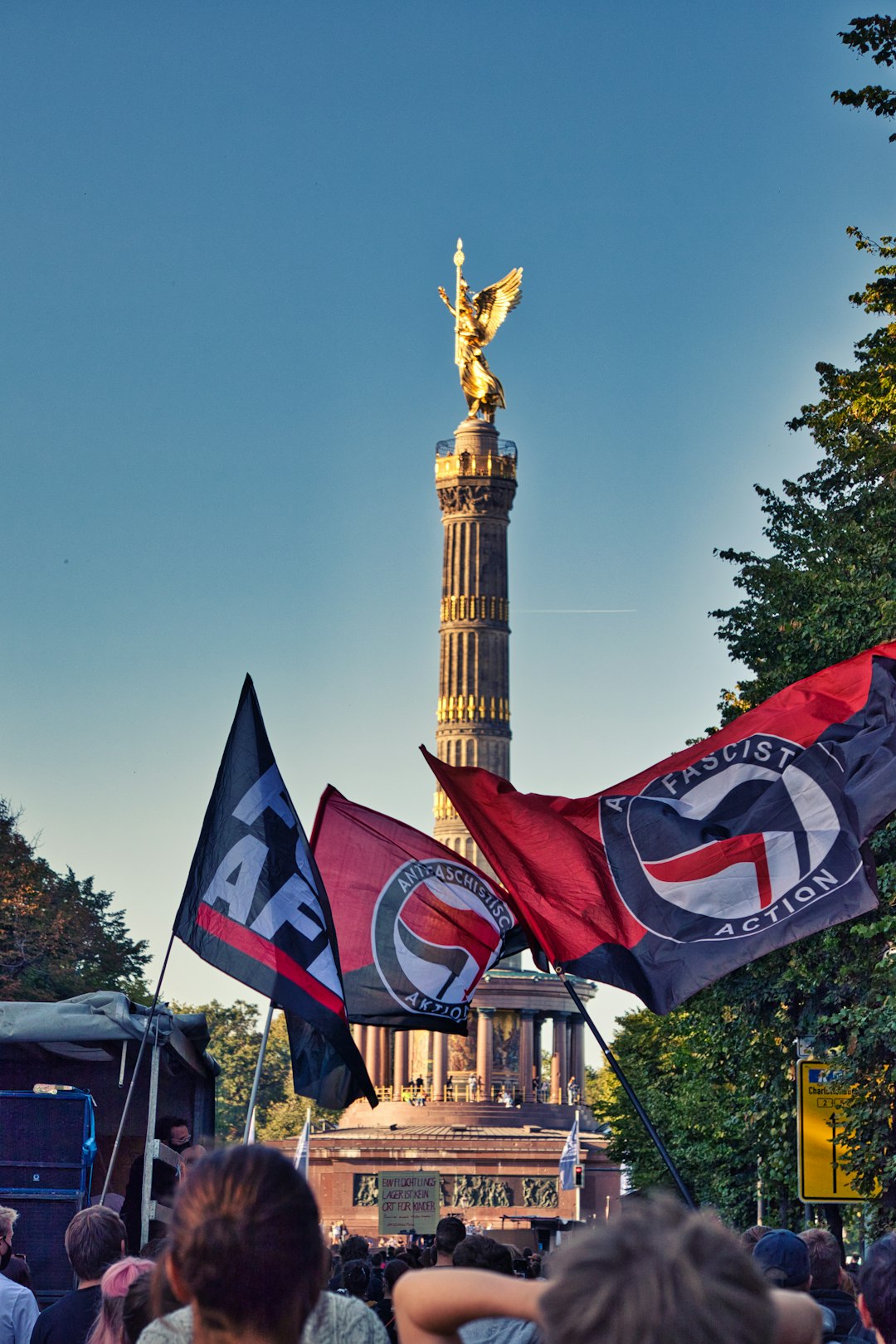Street protests - playing Putin’s game?
This Monday’s newsletter discusses plans from the far-left for a heißer Herbst of social protest. What is this, and why has it led some to draw parallels to the break down of the Weimar Republic?

Background
The left-wing Linke party has promised a heißer Herbst (hot autumn) of street protests against the government’s decision to impose a gas levy on people’s heating bills. As of October, the average home will pay something like €300 to keep companies like Uniper afloat.
Uniper, Germany’s main gas importer would have gone bankrupt if the government hadn’t come to the rescue with a €15 billion bailout last month. Unable to buy the required gas from Gazprom, the Düsseldorf-based company and its competitors have had to source the fossil fuel from elsewhere at vastly higher costs.
The idea behind the levy is that it doesn’t distort the market. The companies will still have an incentive to buy as cheaply as they can.
But critics describe it as a blunt instrument that will hit poorer homes much harder than wealthier ones.
For the left-wing Linke Partei, the levy is “a complete catastrophe” which will “drive millions into poverty.” They say that the real solution is to tax energy companies such as RWE (whom they call the “war’s winners”) on the additional profits they’ve made this year. They promised to provide a vent for “the deep anger” of the German public with their street protests.
But protesting against the levy is a sensitive topic. Vladimir Putin’s decision to squeeze Germany’s gas supply is clearly an attempt to cause exactly the type of divisions Die Linke are seeking to make political hay with. For opponents, the lefties are “Putin’s useful idiots”.
In particular, the party’s decision to call for Montagsdemos - a reference to the protests that helped bring an end to the GDR - is seen as a cynical attempt to drive a wedge between the former east and west. Moreover, the far-right have taken over Monday night protests in recent years and they are already mobilizing their supporters against a government they claim is in the pocket of the US.
“We’re not dividing our society,” Linke Partei leader Martin Schirdewan insisted to WELT. “Quite the opposite, we’re doing our best to keep society together by getting people onto the streets to ensure that the government ends this one-sided burden on our society.”
Schirdewan said that his party’s protest would ensure that “the deep anger that is out there is kept away from the extremists.”
What has the reaction been?
Reiner Haseloff, the CDU leader of Saxony-Anhalt, thinks he knows why he Linke Partei have seized upon the gas levy. “They are fighting for their lives and therefore instrumentalizing this issue with all their might,” he said, referring to polling that shows the party on a disastrous four percent.
But in deciding to exploit such a sensitive issue, the left party are “playing with fire and threatening our democratic stability,” Haseloff stated, adding that the current competition between the far-right and the far-left to mobilize more people onto the streets reminded him of the dying days of the Weimar Republic.
The really galling thing is how Die Linke are taking on the mantel of the Montagsdemo, says Markus Feldenkirchen in Der Spiegel. “It is ridiculous for Die Linke to use the term” - after all they are the successor party to the East German communists for whom “the demonstrations in the autumn of 1989 were, as is well known, rather inconvenient.”
Hold on folks, says Anne Hähnig, correspondent for Die Zeit in Saxony. All Die Linke are doing is calling for protest against a government policy. “Isn’t it an expression of the vitality of a democracy when people take to the streets? Why should it be a disaster when the left organises demonstrations?”
It’s not the fact that Die Linke are organizing protests that is problematic, says the left-leaning media group Redaktionsnetwerk Deutschland. “After all who else is going to do it?” The problem is that a party which was long home to Putinversteher still can’t bring itself “to name the person responsible for the crisis we find ourselves” - i.e. Russian President Vladimir Putin - and be clear that solidarity with Ukraine means that “consequences are inevitable.” Once they’ve established this then they can start a debate about who should bear what burden.
What next?
Opinion is divided over just how heiß this Herbst is going to be.
German spy chiefs have prophesied everything from riots to terror attacks and warn that neo-Nazis have concrete plans to turn this into a “winter of rage.”
Others have criticized these warnings as unnecessarily alarmist. In a report from the eastern town of Zwickau, Der Spiegel concluded that “Zwickau, at any rate, is unlikely to start a revolution. The demonstrators here are pensioners in Birkenstock sandals, couples with slogans like ‘unvaccinated and 2nd class’ on their T-shirts, and a few children.”
Chancellor Olaf Scholz says he is confident he’s taken the necessary steps - the latest being a 12% cut in VAT on gas - to keep Germans content.
But a slip of the tongue by his Foreign Minister, Annalena Baerbock, showed that the government is indeed scared that things could turn nasty.
When discussing a turbine for the Nord Stream pipeline that was stuck in Canada, Baerbock told a journalist: “if we don't get this gas turbine, then we won't get any more gas, then we as Germany won't be able to provide any support at all for Ukraine, because we'll be busy dealing with popular uprisings.”
She later claimed that she had intentionally exaggerated her words. Few people are buying that.



